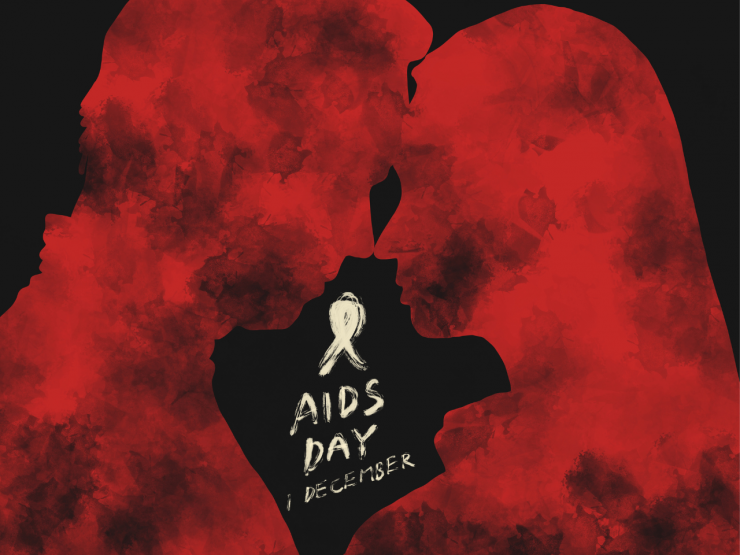World Aids Day 2022
World Aids Day is the 1st of December every year and is a day designated to propagate awareness of the AIDS pandemic resultant of the spread of HIV infection. To raise support for those living with and affected by HIV and to mourn those who have passed away due to the disease.
· In 2021 there were approximately 38.4 million people around the world with HIV
· In 2021 650 000 people died due to AIDS-related illnesses/
· In 2021 1.5 million people became infected with HIV
What is HIV & Aids?
Human Immunodeficiency Virus also referred to as HIV is a virus that targets and corrupts cells in the immune system. It interferes with and decimates their function. It progressively exhausts the immune system causing immunodeficiency, weakening the bodies capability of fighting normal infections and diseases.
Acquired immune deficiency syndrome also known as AIDS is the name given to several potentially life-threatening infections and illnesses which occur when the immune system has been acutely impaired by the HIV virus.
Symptoms of HIV
Most individuals who have caught HIV do not display any symptoms straight away. Two to six weeks after being infected they experience a flu like sickness, then it is possible that the virus will not cause any symptoms for several years as it causes progressive damage to the immune system. Symptoms generally run their course in one to two weeks and signify that the immune system is battling the virus .
symptoms:
· Tiredness
· Sore throat
· Joint pain
· Body rash
· Muscle pain
· Swollen glands
However, remember these symptoms are not indicative you have HIV as they are commonly caused by other conditions as well.
Eventually the immune system will become so severely compromised that people will experience more progressive Symptoms:
· Skin issues
· Recurring infections
· Life threatening Illnesses
· Weight loss
· Severe diarrhoea
· Night sweats
The earlier someone get diagnosed and begins treatment the less likely they are to suffer these problems.
What to do if you think you might have contracted HIV
If you are worried you may have contracted or being exposed to HIV you should visit your GP, a sexual health or GUM clinic as soon as possible. HIV testing services near you
Alternatively, you can test at home using an Ora self-test, available from our online store.
Treatment & Managing HIV
Currently there is no cure for HIV. However, there is efficient treatments that allow most people infected to continue living a healthy and normal life.
Post-exposure prophylaxis also referred to as PEP is a medication you can take if you fear you have been exposed to the virus and may prevent you from becoming infected. This treatment must be taken within a 72-hour window of exposure to HIV for it to be a viable method of treatment. PEP must be taken at the same time every day for one month for it to be effective and may cause side effect.
Pep is available from:
· GUM(genitourinary medicine) and sexual health clinics
· Hospitals (A&E)
If you produce a positive result and are diagnosed as having HIV it will mean, you will have to have frequent blood tests to track the progression of the virus before any treatment begins.
The tests you will need to take are:
· CD4 lymphocyte cell count- This monitors the impact the virus has had on your immune system.
· HIV viral load test - This measures the quantity of the virus in your blood.
Following diagnosis, you can begin treatment factoring in your consultation and circumstances.
Antiretroviral drugs(medicines) are used to treat HIV. They work by preventing the virus from duplicating within the body. In turn allowing the immune system to recover and negate anymore damage. A number of different drugs will be used as the virus adapts and quickly becomes resistant.
One drug that works for some people might be less effective for others, so treatment is tailored to the individual. Generally, this will mean taking one to four pills daily. Some pills will be made up of a combination of different medicines known as a fixed dose.
The amount of virus present in the blood will determine how effectively the treatment is working. Eventually it will become what is known as an undetectable viral load which generally happens around the six-month mark of treatment.
Be sure to inform your GP or HIV clinic before taking any other over the counter or store-bought medications as they may interact with your medicines prescribed for your HIV treatment.
Prevention
Abstinence is the only 100% effective way to prevent HIV but let’s face it, this is very unrealistic.
So here are some other ways you can protect yourself:
· Less risky sexual behaviors such as unprotected vaginal or anal sex.
· Use a condom
· Take Prep (Pre-exposure prophylaxis)
· Reduce the number of sexual partners you have
· Have regular sexual health check ups
*Data sourced from UNAIDS https://www.unaids.org/en/resources/fact-sheet
and the NHS https://www.nhs.uk/conditions/hiv-and-aids



